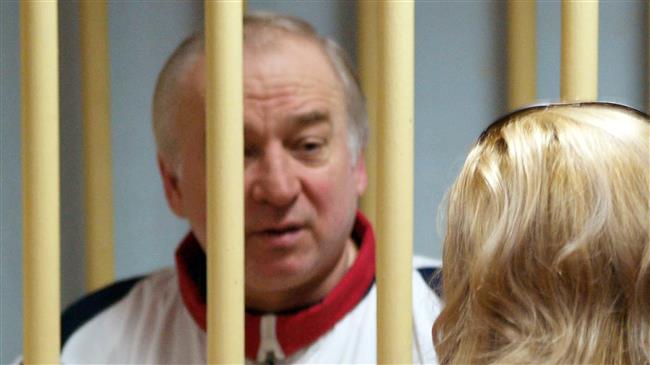Britain says Russia spied on Skripals for five years before attack
Britain says Russian intelligence agencies were spying on former double agent Sergei Skripal and his daughter, Yulia, for at least five years before poisoning them in a nerve agent attack.
British National Security Adviser Mark Sedwill made the claim in a letter to NATO Secretary General Jens Stoltenberg on Friday, saying that the Skripals had been the subject of “interest” from the Kremlin’s security services since 2013.
“We have information indicating Russian intelligence service interest in the Skripals dating back at least as far as 2013, when email accounts belonging to Yulia Skripal were targeted by GRU cyber specialists,” Sedwill said, referring to Russia’s Main Intelligence Directorate, abbreviated GRU.
“It is highly likely that the Russian intelligence services view at least some of its defectors as legitimate targets for assassination,” he added.
The two were found unconscious on a bench in the British town of Salisbury on March 4 and then taken to hospital for treatment.
The UK accused Russia of being behind the incident and said the Novichok nerve agent -- a group of deadly chemical compounds reportedly developed by the Soviet government in the 1970s and 1980s -- had been used to poison the Skripals.
Russia has strongly rejected the claims and, in turn, blamed Britain and the countries studying the nerve agent for the attack. Russia said it completed the destruction of all its Soviet-era chemical weapons arsenals last year under international oversight.
In the letter to NATO, Sedwill reiterated previous remarks by UK officials that Moscow was to blame for the military-grade nerve agent used against the former spy and his daughter on British soil last month.
“We therefore continue to judge that only Russia has the technical means, operational experience and motive for the attack on the Skripals and that it is highly likely that the Russian state was responsible. There is no plausible alternative explanation,” he wrote in the letter.
“It is highly likely that Novichoks were developed to prevent detection by the West and to circumvent international chemical weapons controls,” Sedwill added. “The Russian state has previously produced Novichoks and would still be capable of doing so.”
Sedwill’s assertions came after an independent investigation by the Organization for the Prohibition of Chemical Weapons (OPCW) confirmed that a class of nerve agents known as Novichoks had been used in the Salisbury incident.
The OPCW said it had verified London’s analysis of the agent used but did not blame any side for the attack.
London has called for a UN Security Council meeting on the poisoning case, which has triggered a severe diplomatic standoff between Russia, on the one side, and the UK and its European allies, on the other.
Yulia, a Russian national, was discharged from the hospital on Monday, but her father is “still seriously ill.” She has refused Russian consular assistance and her whereabouts remain unknown.
Sergei Skripal was found guilty by a Russian tribunal of selling classified information to the UK’s spy agency MI6 and was imprisoned in Russia in 2006. He was exchanged in a spy swap in 2010.
VIDEO | Another US government shutdown looms as ICE furor grows
VIDEO | EU lawmakers condemn Trump over US human rights abuses
VIDEO | Iranian Embassy marks 47 years since Islamic Revolution with high-level attendance
Funding lapse set to trigger US Department of Homeland Security shutdown
Gaza’s civil defense says 8,000 bodies of genocide victims remain under rubble
Iran: Israeli violations main obstacle to peace, security in Syria
VIDEO | Trump-Netanyahu meeting
VIDEO | Palestine Action wins legal challenge












 This makes it easy to access the Press TV website
This makes it easy to access the Press TV website